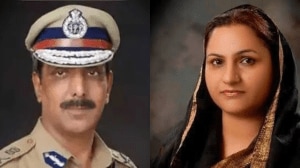`No limit to President’s powers’
CHENNAI, DEC: The powers of the President of India under Article 72 of the Constitution do not contain any limitation as to the time and o...

CHENNAI, DEC: The powers of the President of India under Article 72 of the Constitution do not contain any limitation as to the time and occasion or to the circumstances under which the power conferred might be exercised, a counter-affidavit (CA) filed in the Madras High Court has said.
In his CA filed before Justice K Govindarajan in response to a petition from Govindasamy of Erode district, challenging an order of the President of India rejecting his mercy plea, Joint Secretary in the Union Home Ministry submitted that all aspects of petitioner’s case had been considered before the rejection.
Denying petitioner’s averment that the President had not gone into the merits of the case, the Joint Secretary said that all aspects of the case including the acquittal by the trial court and petitioner’s submissions had been taken into account before arriving at a decision. The President is not bound to accept all the mercy petitions. Each case is examined and appreciated by the President and a decision is taken as to whether mercy can be granted or not, depending upon the facts of each case, gravity of the offence and court’s observations. There was no unreasonable delay. Hence, the question of reconsideration does not arise.
As regards the impleading petitions from civil liberties organisations, the CA said that these organisations should answer to the court as to what steps they had taken to console the family members of the affected persons and to rehabilitate them, who suffered loss of lives because of the criminal acts of the petitioner.
These organisations should answer what steps they had taken to arrest recurrence of such offenses. There cannot be civil liberties only for the accused, unmindful of the victims or citizens.
In his reply P H Manoj Pandian submitted that the delay in the disposal of the mercy petitions will entitle a person under Article 21 of the Constitution for commutation of the death sentence, as rendered by the Supreme Court and the High Courts. The delay in the execution of the sentence will also render the sentence to be commuted to that of life imprisonment.
The mental agony suffered by the prisoner from the date of sentence of death till the date of its execution has to be considered for purpose of commutation. Further, the CA does not disclose why there had been an undue delay of about 15 months in considering the mercy plea. The advice of the Cabinet ministers had also not been obtained. In this connection, he cited the judgement of the same judge in the case relating to Nalini, Murugan, Santhan and Perarivalan, the condemned prisoners in the Rajiv Gandhi assassination case, in which the judge had quashed an order of the State Governor rejecting their mercy pleas.
Justice Govindarajan adjourned the matter till December 9.



- 01
- 02
- 03
- 04
- 05




























